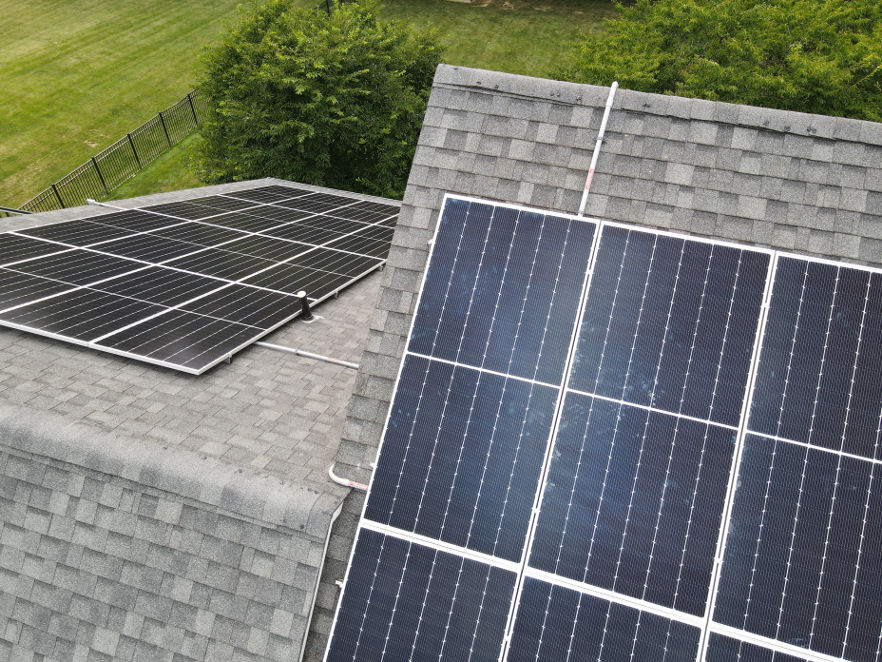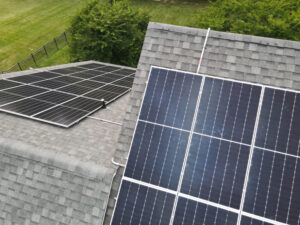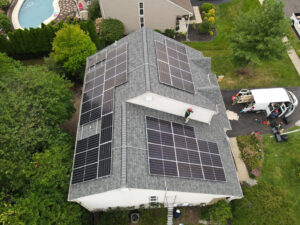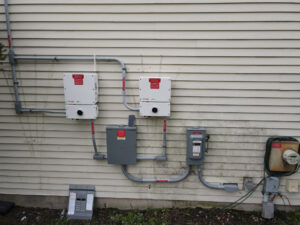Introduction to Solar Homes
What is a Solar Home?
A solar home integrates solar panels to harness sunlight and convert it into electricity, reducing reliance on traditional power sources. These residences are designed to maximize energy efficiency, incorporating features like high-performance insulation and energy-efficient windows. The objective is to reduce environmental impact while providing sufficient power for daily activities. Solar homes are becoming a popular choice for those looking to decrease both their carbon footprint and utility bills.
The Rise of Solar Energy in Residential Areas
The adoption of solar energy in residential areas has accelerated due to decreasing costs and improved technology. Homeowners are motivated by the potential for reduced electricity bills and the opportunity to contribute to environmental sustainability. Governments often support this transition through incentives such as tax breaks and rebates. As a result, neighborhoods are increasingly dotted with homes equipped with solar panels, reflecting a shift towards renewable energy solutions.
Benefits of Solar Homes
Environmental Benefits
Solar homes contribute significantly to environmental conservation by utilizing clean, renewable energy from the sun. By reducing dependence on fossil fuels, these homes lower greenhouse gas emissions and diminish overall air pollution. Additionally, solar energy systems operate silently, reducing noise pollution compared to traditional energy sources. These benefits make solar homes an environmentally friendly choice in residential construction.
Financial Savings
Financial benefits are one of the main drivers for homeowners to install solar systems. The initial investment in solar technology can be offset by significant reductions in monthly energy expenditures. Over time, the savings incurred from lower utility bills can exceed the upfront costs, especially with government subsidies and incentives. Moreover, solar homes often enjoy increased property values, providing financial advantages upon resale.
Energy Independence
Solar homes increase homeowners’ energy independence, lessening their reliance on utility companies and fluctuating energy prices. This autonomy is especially valuable in areas prone to power outages or with high electricity rates. By generating their own power, residents can ensure a consistent and reliable energy supply. Furthermore, excess power can sometimes be sold back to the grid, generating additional income and further enhancing self-sufficiency.
Key Components of a Solar Home
Solar Panels
Solar panels are essential for converting sunlight into usable electricity in solar homes. They consist of photovoltaic cells that create a flow of electrons when exposed to sunlight, producing direct current (DC) electricity. The efficiency of solar panels can vary, influenced by factors like panel orientation, local climate, and technological advancements. Properly installed, these panels can provide clean energy for decades with minimal maintenance.
Inverters
Inverters play a crucial role in solar homes by converting the DC electricity from solar panels into alternating current (AC) usable by household appliances. They also help manage the energy flow between the solar panels, the home, and the electrical grid. Modern inverters can optimize the conversion process to maximize energy efficiency and output. Additionally, they monitor system performance and can provide diagnostics to help maintain optimal operation.
Batteries
Batteries in solar homes store surplus energy produced during peak sunlight hours for use during lower light conditions or at night. This storage capability ensures that homes can remain powered even when solar energy is not immediately available. Advanced battery systems can also provide critical backup power during grid outages, enhancing home resilience. By using batteries, homeowners can maximize their use of solar energy and reduce their dependence on the grid.
Energy Management Systems
Energy management systems in solar homes intelligently monitor and control energy usage and production. These systems can optimize when to store solar energy, when to use it directly, or even when to sell the excess back to the grid. They help homeowners make the most efficient use of their solar power, adapting to both consumption patterns and energy rates. Such systems are integral to modern solar homes, ensuring energy efficiency and cost-effectiveness.
Designing a Solar Home
Orientation and Layout
The orientation and layout of a solar home are crucial for maximizing solar energy capture, where the home and its solar panels are positioned to get optimal sunlight exposure. Features like large south-facing windows and minimal shading from trees or other buildings can significantly enhance efficiency. Roof angle and the positioning of solar panels also play a key role in optimizing energy absorption year-round. These considerations ensure that homeowners get the most out of their investment in solar technology.
Building Materials
Building materials in solar homes are selected for their energy efficiency and ability to maintain a stable indoor climate. Materials like reflective roofing, insulated siding, and thermal mass flooring can help regulate indoor temperatures and reduce the need for supplemental heating or cooling. Using sustainable materials can also minimize the environmental impact of the home. These choices contribute to the overall energy efficiency and sustainability of solar homes.
Energy Efficiency and Optimization
Smart Home Technology and Solar Integration
Smart home technology enhances solar integration by allowing homeowners to monitor and control their energy usage through intuitive interfaces and automated systems. These technologies can optimize the timing of electricity usage to coincide with peak production hours, improving overall efficiency. Additionally, smart systems can detect and report issues, ensuring that the solar power system operates at peak efficiency. The synergy between smart home technology and solar technology is pivotal for modern, energy-efficient living.
High-Efficiency Solar Panels and Equipment
High-efficiency solar panels and equipment are crucial for maximizing the energy output per square foot of a solar home. These advanced panels use top-tier photovoltaic cells that convert a higher percentage of sunlight into electricity. Coupled with modern inverters and battery systems, they ensure that more of the sun’s energy is captured and used effectively. Investing in high-efficiency technology can lead to significant long-term savings and greater environmental benefits.
Impact of Solar Homes on Local Communities
How Solar Homes Contribute to Economic Growth
Solar homes stimulate economic growth by creating jobs in the renewable energy sector, ranging from manufacturing to installation and maintenance of solar systems. The increased demand for solar technologies encourages investments in related industries, further boosting local economies. Homeowners with solar systems also save on electricity costs, allowing them to spend their savings in other areas of the economy. Moreover, the presence of solar homes can increase property values, benefiting local real estate markets.
Community Engagement and Shared Solar Initiatives
Community engagement and shared solar initiatives allow individuals who may not have suitable rooftops for solar panels to benefit from solar energy by investing in community solar projects. These programs promote social cohesion as community members come together to support renewable energy adoption. Shared solar projects can reduce overall energy costs for participants and increase access to clean energy for renters and apartment dwellers. They also serve as educational platforms to raise awareness about the benefits of solar energy.
Environmental Benefits of Local Solar Adoption
Local adoption of solar energy significantly reduces reliance on fossil fuels, leading to lower greenhouse gas emissions and a smaller carbon footprint. Solar homes contribute to a decrease in air pollution, which can improve public health outcomes by reducing respiratory and cardiovascular diseases. The shift towards solar energy also lessens the impact on local ecosystems compared to conventional energy sources, which often require extensive land use and water resources. Furthermore, solar energy systems operate silently, reducing noise pollution in communities.
Conclusion
Solar homes harness the sun’s energy to provide sustainable power, combining cutting-edge technology with eco-friendly design to optimize energy efficiency and reduce utility costs. These homes not only contribute to environmental health by lowering carbon emissions but also offer significant economic benefits through savings and increased property values. By incorporating smart features and innovative materials, solar homes are thoughtfully designed to meet diverse climatic demands, ensuring comfort and functionality across various regions.
Visit Sunwise USA to learn more about how solar homes can transform your energy usage and contribute to a sustainable future. Find out how you can harness the power of solar technology to reduce your carbon footprint, save on energy costs, and enjoy the benefits of living in an environmentally friendly home. Start your journey towards a greener, more cost-effective residence with Sunwise USA today.








